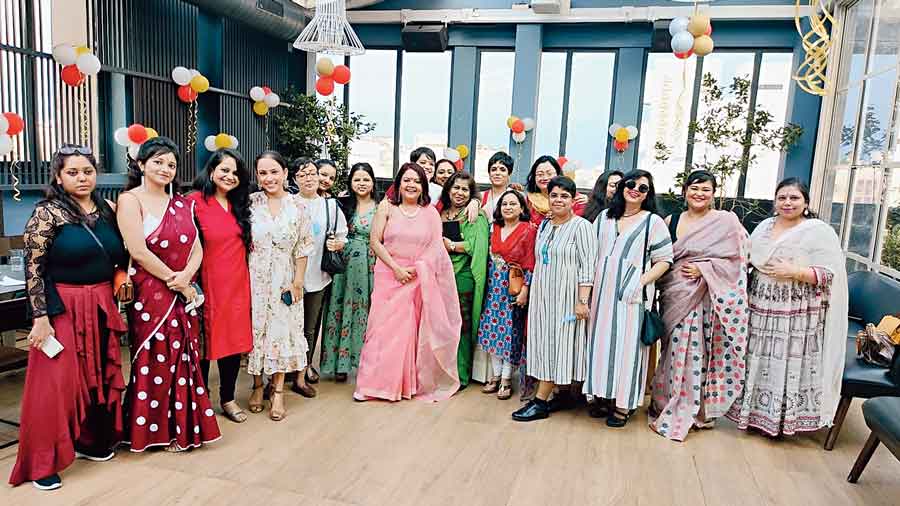A group of women has come together to support women, young and old, from all walks of life. There is one condition — the woman has to be single, by circumstances or by choice.
The support comes in different forms like healthcare, career, custody of child/children, investment tips and property rights.
Status Single, a Facebook community of those who identify as single women — never married, divorced, widowed, separated or abandoned — advocates for single women’s rights and aims to dispel the stereotypes associated with the community in India.
The community, rapidly expanding in the virtual world, is also making forays into the physical. Around 100 members, part of six city chapters, have recently met in person. The meet-ups took place across October in Calcutta, Delhi, Mumbai, Bangalore, Chennai and Pune.
The meeting in Kolkata, of around 30 active members, happened at a Shakespeare Sarani restaurant on October 15.
“During the meeting, the members shared personal accounts of their struggles and successes and failures. A community doesn’t happen overnight. It needs effort, warmth, support and a sense of belonging,” said Sanchari Sinha, the head of the Kolkata chapter.
Sinha, an advertising professional, now plays full-time caregiver to her ageing parents and maternal grandmother.
The members come from diverse professions — law, advocacy, teaching, HR, corporate communications, finance, self-employed entrepreneurs, marketing, social evangelists and medicine. The community also includes differently-abled women.
The Kolkata list is a testimony to the diversity.
Gynaecologist Indrani Lodh and restaurateur Doma Wang are among the members of the group. Shiny Hoque, a cancer survivor, writer and communications professional, is also a member. As is Sumita Sukarchakiya, who rose the corporate ladder before opting to be a stay-at-home mom, only to be forced by the circumstances to enter the corporate world again.
One common thread — all of them are single women.
For November, the community has decided to deliberate upon financial literacy and investment tips.
Across the city-based chapters, the community aims to promote single-women owned businesses and celebrate solo entrepreneurial ventures, offering a space for members to post job alerts and finding avenues for financial wellness.
“Women operate joint accounts with their father or husband. For savings, investment or for something as routine as filing taxes, they are dependent on others. Single women need more help on these money matters,” said Sinha.
On November 13, the members of the community took part in an interactive online session with Priyanka Bhatia, a financial consultant.
Multiple women, including some from Kolkata, posed questions on mutual fund investments. Retirement planning was also a frequently discussed topic.
A second meet-up in the city is slated for November 28.
The name, Status Single, draws from a 2018 book by Kolkata-born journalist-author, and a single-woman, Sreemoyee Piu Kundu, comprising interviews with over 3,000 urban women from all over the country. Kundu is also the founder of the group.
In a note, the community has cited the 2011 Census, which shows the number of single women registering a 39 per cent hike between 2001 and 2011 — from 51.2 million to 71.4 million. This includes widows, divorcees, unmarried women, and women who are separated from their husbands.
“Despite the numbers, we are still somewhat of an anomaly, especially since in India, marriage and motherhood are placed at a premium. So many women battle abuse, discrimination and isolation. There is rampant cheating and legal and normative barriers in having access to and owning property and other assets, besides, accessing basic services such as education, employment and health,” said Kundu, raised by a single mother in the city.
